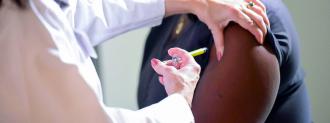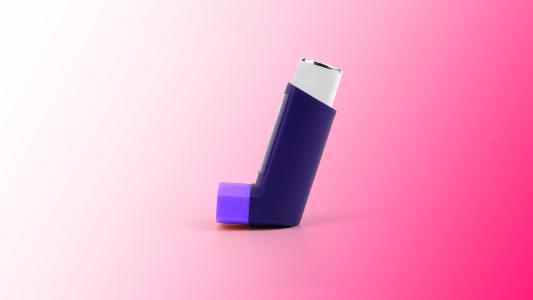Healthcare giant Johnson & Johnson’s COVID-19 vaccine has reached the critical Phase 3 stage of human testing — and while three vaccines have already hit that milestone in the U.S., this one may have several advantages over the others.
For starters, while the vaccines developed by Moderna, Pfizer, and the University of Oxford each require two doses, Johnson & Johnson’s COVID-19 vaccine is designed to deliver protection with just one shot.
With 60,000 volunteers, Johnson & Johnson’s COVID-19 vaccine trial will be the largest to date.
That means it could halve the number of doses needed overall, as well as making it easier for people to get vaccinated — no need for them to visit a doctor’s office or clinic twice.
Additionally, the vaccines developed by Moderna and Pfizer need to be stored at below-freezing temperatures. Johnson & Johnson’s COVID-19 vaccine, however, just needs to be refrigerated, which could make it easier to distribute.
A Massive Trial
The design of the Phase 3 trial itself also has several advantages over the others.
With up to 60,000 adult volunteers spread across eight nations, Johnson & Johnson’s COVID-19 vaccine trial will be the largest to date. This could decrease the amount of time needed to generate results, trial leader Daniel Barouch told the New York Times.
Johnson & Johnson also aims to enroll volunteers that reflect diverse populations.
“In the U.S., this includes significant representation of Black, Hispanic/Latinx, American Indian, and Alaskan Native participants,” the company wrote in its trial announcement.
This something earlier trials have failed to do — despite the fact that minority populations have been disproportionately affected by the pandemic — and it could help ensure that the coronavirus vaccine will protect all populations equally.
The Next Steps
First, though, Johnson & Johnson’s COVID-19 vaccine must pass this critical final stage of testing — and it’s hard to know just how likely that is at this point.
So far, the company has published the results of a monkey study, which showed that the vaccine prompted the creation of enough antibodies to protect the animals from infection.
The coronavirus vaccine could be ready for distribution by early 2021.
During a combined Phase 1 and 2 trial, a single dose of the coronavirus vaccine generated “encouraging levels” of antibodies in nearly 400 volunteers and caused no serious side effects, Johnson & Johnson CSO Paul Stoffels told the NYT.
The company has yet to publish those results in a peer-reviewed journal, but has submitted them to the preprint server medRxiv.
If all goes well with the Phase 3 trial, Johnson & Johnson believes it could be ready to begin distributing its vaccine to the public as soon as early 2021.
We’d love to hear from you! If you have a comment about this article or if you have a tip for a future Freethink story, please email us at [email protected].






